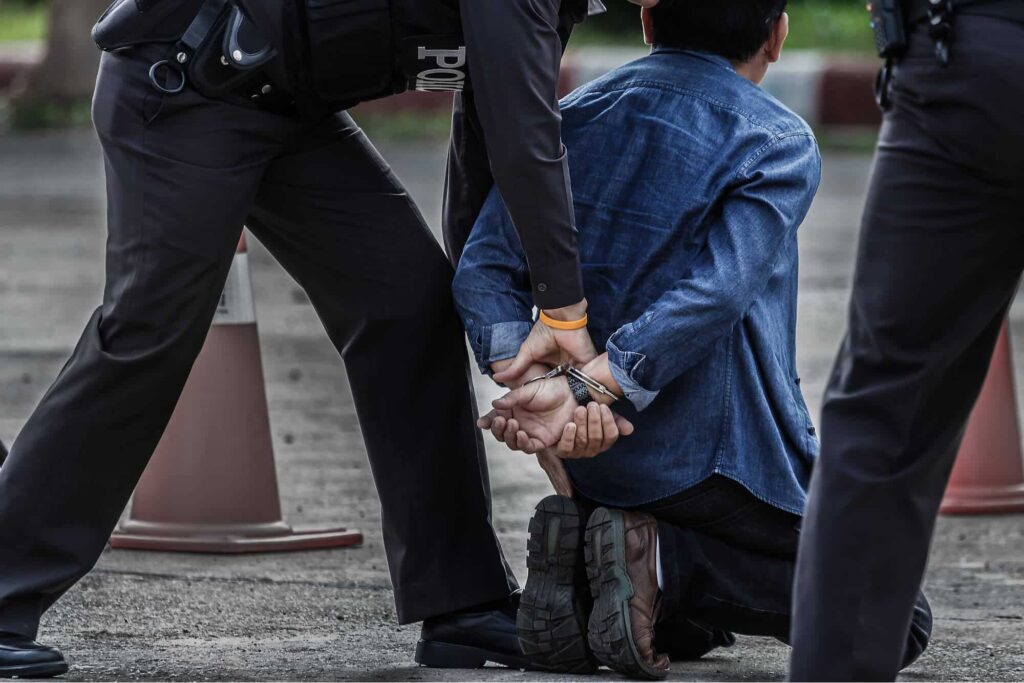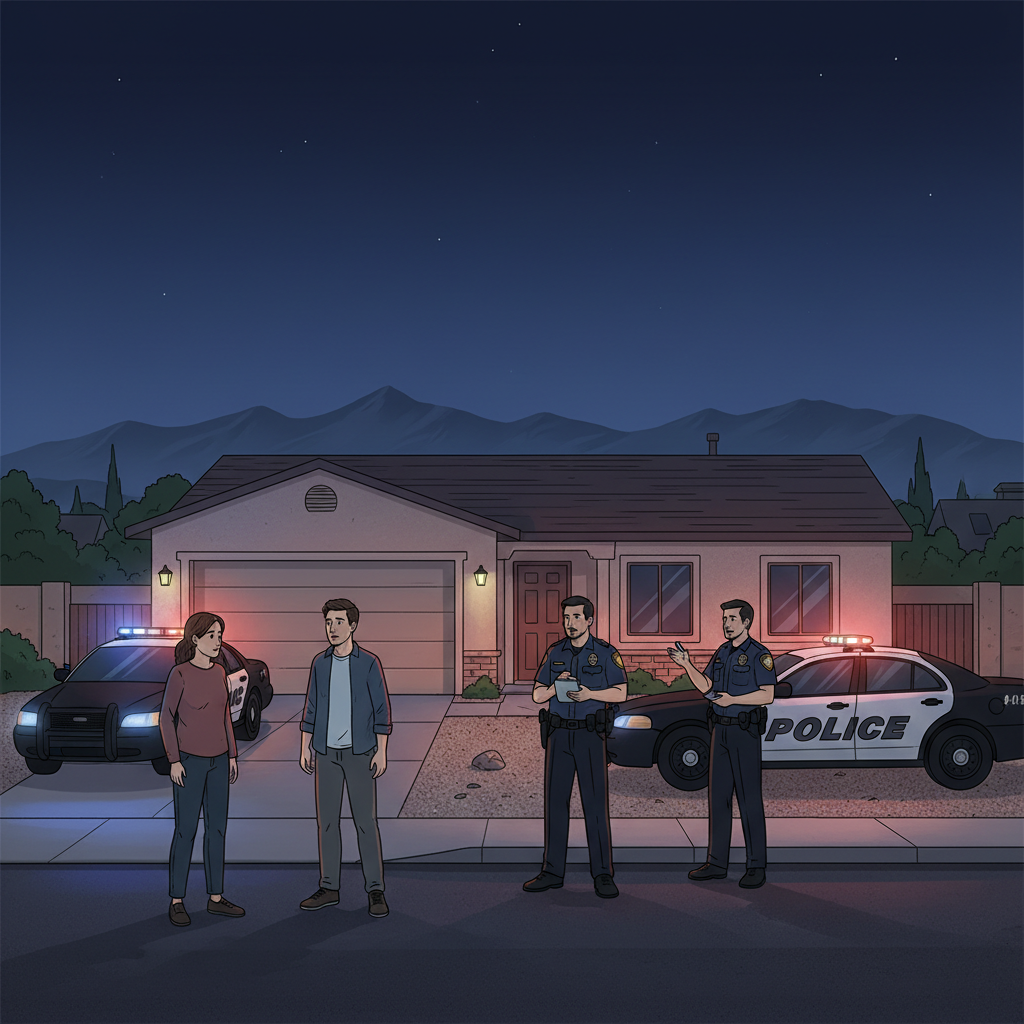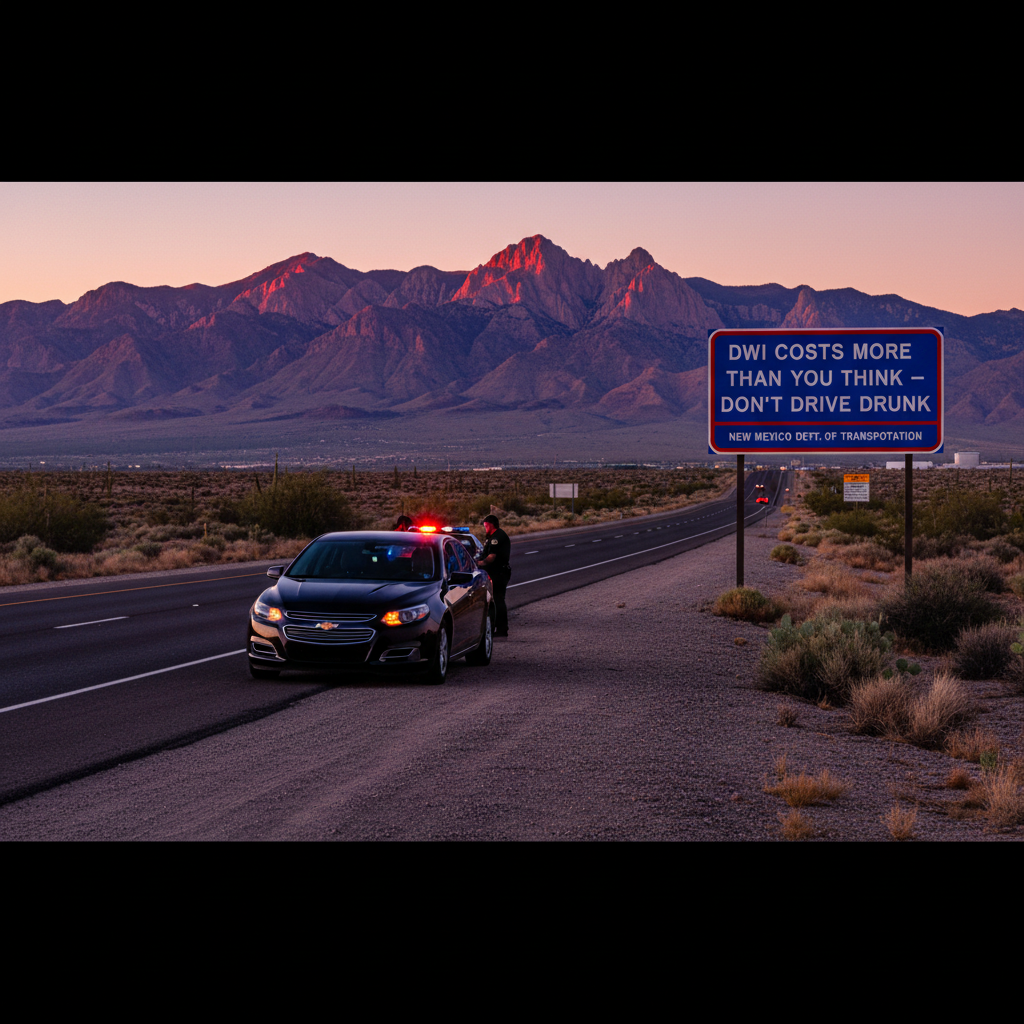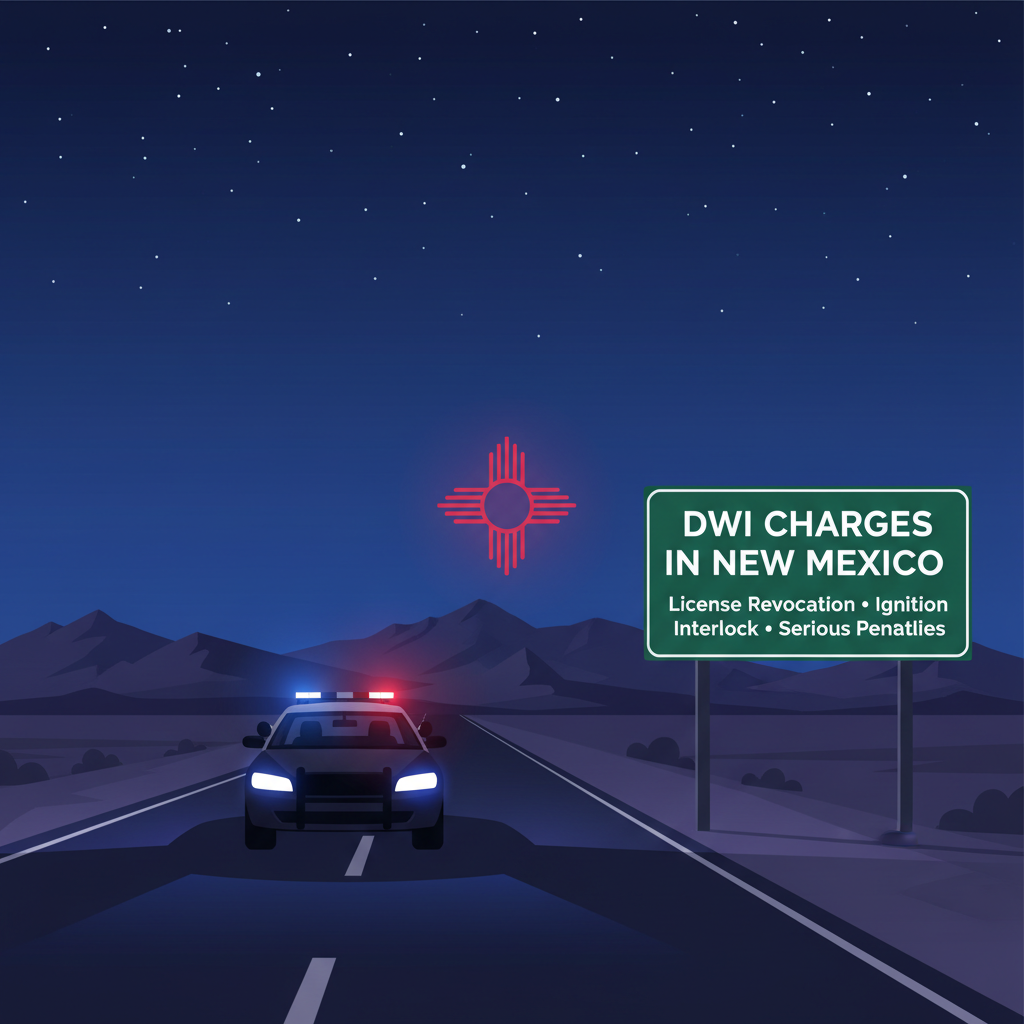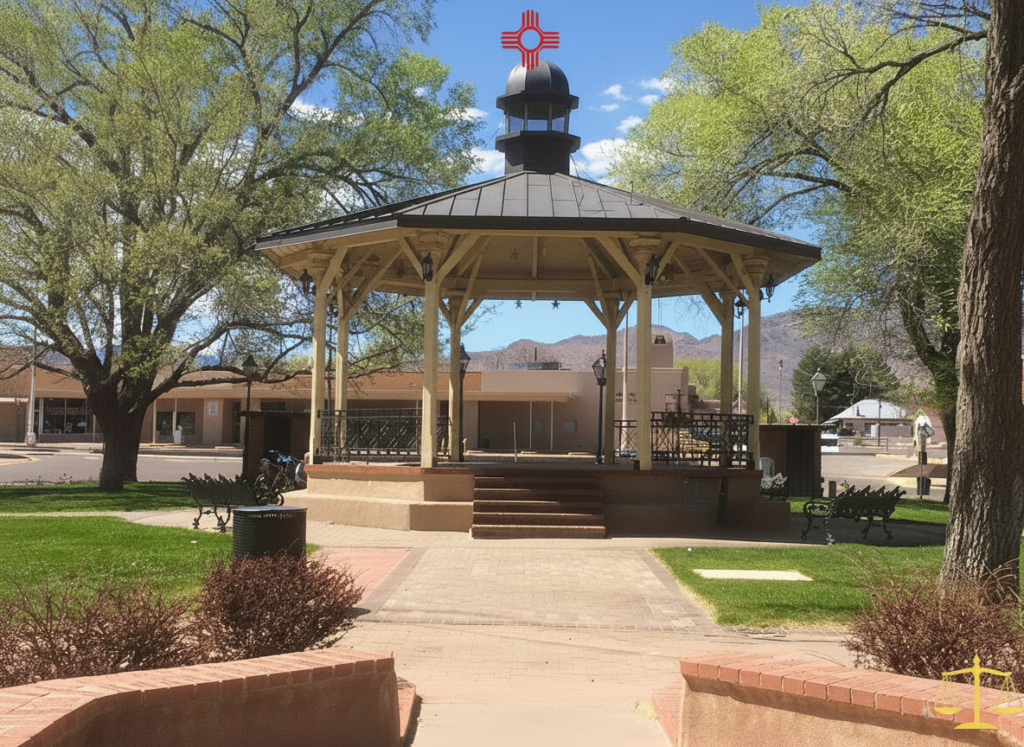When Police Cross the Line: Your Rights, Your Safety, and Your Path Forward In New Mexico
Civil rights violations during police encounters happen more often than many realize. Whether an officer makes an honest mistake or acts out of bias; accidentally and understandably errs or uses unnecessary and excessive force, the violation of your constitutional rights is neither acceptable nor without remedy. Most importantly, if you experience what you believe to be a civil rights violation, your immediate responses—both physical and legal—can mean the difference between justice served and an opportunity lost. In this blog, I explain how civil rights cases with a criminal law nexus are about the long game and require patience, restraint and intelligent consultation to win both to protect your rights and get redress.
The Reality: Police Overreach
The first thing to understand is that police overreach exists on a spectrum. Sometimes it stems from an officer’s simple error in judgment or misunderstanding of the law. Other times, it reflects something far darker: institutional racism, a department’s culture of aggression, inadequate training, or an officer taking out frustration or trauma on someone who crosses their path. And sometimes, it happens because a person exercises their rights—refusing to consent to a search, questioning why they’re being detained—and the officer responds by escalating the situation into something that shouldn’t have happened.
Here’s what’s crucial: No one deserves abuse, cruelty, or rights violations regardless of whether they’re suspected of committing a crime or are entirely innocent. The Constitution, both US and New Mexico State, protects us all. Certainly if you are 100% innocent. But even if you were breaking the law, that never justifies excessive force. When an officer violates your rights during an arrest or police encounter, that violation is an important wrong that must be addressed. But if the context is a criminal case, which it so often is, you need to hold on tight to protect your liberty and safety.
When Rights Are Violated: What You’re Likely Feeling
If you’ve just experienced what feels like a civil rights violation, you’re probably flooded with intense emotions. Anger is natural—you have a right to be angry when your rights are trampled. You might feel shame or embarrassment at being treated that way, especially if the encounter happened in public or involved physical force. You may experience shame around your powerlessness in the moment. For many people, such an encounter can trigger past trauma or existing PTSD, bringing back old wounds. These feelings are valid and real.
But here’s where wisdom and self-preservation must override emotion: the moment of violation is not the moment to fight back physically, to match aggression with aggression, or to escalate the situation.
I come across and help so many folks who have been floored by brutality. Easier said than done, but I always say that you have to hold in the urge to explode and get out of danger, deal with the criminal case and contact an attorney. Because there is no way to win a physical fight with a police officer.
The Critical First Step: Protect Your Body and Your Future
When you’re in a police encounter that feels like an overreach or violation is happening, your primary obligation is to your own safety and your future legal case. This is counterintuitive when you’re experiencing rage or fear, but it’s essential.
Stay calm and comply with orders even if they feel unjust. We understand this is extraordinarily difficult. Every instinct may tell you to resist, to assert your rights in the moment, to demand an explanation. But here’s the truth: fighting with police in the moment will almost certainly make things worse for you physically in that instant, and it can give prosecutors ammunition in both your criminal and civil rights cases later. Charges like “resisting arrest” or “assault on a police officer” often emerge not from genuine criminal conduct but from the suspect’s understandable reaction to an unlawful police action—a cruel irony that compounds the initial violation. Frankly, these charges can even serve to cover up the initial error by the officer, leaving you to take the bad consequences.
Instead:
Remain respectful and calm in your words and demeanor. Keep your hands visible. Speak clearly. Do not run. Do not raise your voice or make sudden movements. Do not consent to searches, but say this respectfully: “I do not consent to a search.” If ordered to do something that seems unlawful, if you must say something say, “I do not believe this is lawful, but I am complying under protest.”
Observe and remember. Your mind is a camera. Try to stay present and notice details: the officer’s name and badge number, the date and time, the location, the exact words spoken, the names of any witnesses, what the officer was wearing, physical details of any vehicles or equipment involved, any visible injuries or marks on your body, the sequence of events. If possible, and without creating danger, try to remember the names and contact information of any witnesses. If you’re able to record audio with your phone, do so—but never do this in a way that creates physical danger or resistance.
Document your injuries and condition as soon as safely possible. Take photographs of any bruises, cuts, or marks. Write down a detailed account of what happened while it’s fresh. Keep records of any medical treatment.
The Legal Urgency: Time Is Your Enemy
Here is where the emotional recovery must take a back seat to legal action, at least temporarily. In New Mexico, there are critical statutory deadlines that, if missed, can permanently bar your ability to recover damages for violations of your rights. There are no second chances with these deadlines.
You cannot simply wait until your criminal case is over to get civil rights justice.
If you believe you’ve experienced a civil rights violation at the hands of law enforcement, you need to consult with an attorney as soon as possible—ideally within days, not weeks.
New Mexico has two primary frameworks for civil rights claims:
The New Mexico Tort Claims Act (NMTCA): If the officer or department is a government entity or employee, you likely have claims under the NMTCA. The hard deadline is critical: you must provide written notice of your claim to the appropriate government entity (usually the police department or municipality) within 90 days of the date of the incident. This is not a suggestion. Missing this deadline will, in nearly all cases, permanently bar your ability to sue, with very limited exceptions. After providing proper notice, you have up to two years from the date of the incident to file your actual lawsuit, but that 90-day notice must come first.
The New Mexico Civil Rights Act (NMCRA): In 2021, New Mexico passed groundbreaking legislation that allows residents to bring state-level civil rights claims against public entities and officers for violations of constitutional rights. Unlike federal law, the NMCRA explicitly removes qualified immunity—a doctrine that has historically made it nearly impossible to hold police officers accountable. The NMCRA provides for damages up to $2 million (adjusted for cost of living) and provisions for recovery of attorney’s fees. For NMCRA claims involving certified law enforcement officers, you must file notice within one year of the incident. The overall statute of limitations for NMCRA claims is three years.
These deadlines are not flexible. An attorney must act immediately to preserve your rights.
Beyond the Legal Case: Heal Your Body and Your Mind
While legal action is urgent and important, so is your physical and psychological recovery. Police encounters that involve force, threats, or violations can cause trauma—both physical injuries and emotional wounds. Do not minimize either.
Seek medical attention. If you were injured during the encounter, get examined by a doctor or emergency room. Preserve the medical record. Even if injuries seem minor, document them. Some injuries develop or worsen over time.
Seek mental health support. The psychological impact of police abuse or violations cannot be overstated. Anxiety, hypervigilance, anger, shame, depression, flashbacks, and PTSD are all common and legitimate responses. Counseling is not a luxury or a sign of weakness—it’s an essential part of recovery and it’s also important to your legal case. A therapist or counselor can document the psychological harm you’ve suffered, which becomes part of your damages claim. Many attorneys can refer you to trauma-informed therapists who understand the specific impact of police encounters.
Do not underestimate the power of counseling. It serves dual purposes: it helps you heal, and it creates a record of the harm you suffered that strengthens your legal claim.
Why Max Pines Law Is Different: The Integration of Criminal and Civil Rights Defense
Most attorneys specialize in one area: either criminal defense or civil plaintiff’s cases like personal injury. This fragmentation can be dangerous for you because these two areas of law interact in critically important ways that only someone skilled in both can see and exploit.
Here’s what makes a difference: When you face criminal charges emerging from a police encounter (charges like resisting arrest, assault on police, or even the underlying charge that prompted the stop), your criminal defense must be coordinated with your civil rights claim. Evidence that helps prove excessive force or an illegal arrest in your civil case can also support your criminal defense. Conversely, how your criminal case is handled affects your civil rights case. An attorney who understands both areas can navigate these intersections to protect your rights in both proceedings.
Max Pines Law handles both your criminal defense and your civil rights claim. This means you’re not playing in silos. We understand how violations during an arrest affect both your criminal case and your civil rights remedies. We can act quickly to preserve evidence, document violations, meet statutory deadlines, and build a coordinated strategy that protects you in both arenas. We understand the psychological and practical realities of what you’re experiencing, and we know the law inside and out.
Taking Action: What to Do Now
If you’ve experienced what you believe to be a civil rights violation during a police encounter:
- Prioritize your safety first. If you need medical attention, get it. If you’re in immediate danger, contact emergency services.
- Document everything you can remember. Write it down. Take photographs of injuries. Preserve any recordings or evidence.
- Contact an attorney immediately. Do not wait. The 90-day notice deadline under the NMTCA is unforgiving, and the one-year deadline for NMCRA claims moves quickly. An early consultation can mean the difference between a viable case and a lost opportunity.
- Seek medical and mental health support. Your physical and emotional recovery matters, and it also strengthens your legal claim.
- Do not discuss the incident with police without an attorney present. Do not post about it on social media in detail. Do not sign anything without legal counsel.
Your rights are not abstract concepts written in a constitution you may never read. They are real protections that apply to you right now, today, in your interaction with police. When those rights are violated, you deserve accountability, you deserve compensation, and you deserve to heal. But none of that happens without action—swift, informed, and guided by an attorney who understands both the criminal and civil law implications of what happened to you.
If you’re in New Mexico and you’ve experienced a civil rights violation during a police encounter, reach out to Max Pines Law today. We understand what you’re facing, we know the law, and we know how to act fast to protect your rights.

